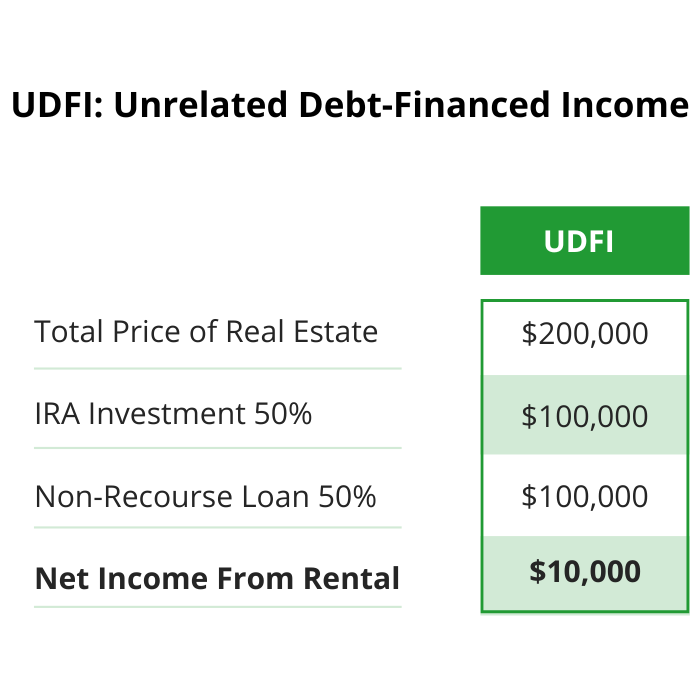When Does UBIT Apply?
Business Income in SDIRA
Unrelated Business Income Tax (UBIT) may apply when you earn $1,000 or more of gross income in a year from unrelated business activity or financed property within your SDIRA.
UBTI Tax Example
Say your SDIRA invests in a restaurant through an LLC. Business is booming and the LLC is generating income. This income might be taxed as Unrelated Business Income (UBIT) for your IRA since it's not directly related to retirement savings. This means the restaurant's profits distributed to your SDIRA could be subject to UBIT.
Without UBIT, the IRA-owned LLC restaurant could undercut competitors on price or have other unfair advantages because it wouldn't pay taxes like most businesses.
Debt-Financed Income From a SDIRA Real Estate Investment
Real estate rental income (when you don't have a loan), dividends, investment income, and royalties are not subject to UBIT. This passive income from these types of assets goes back into your SDIRA tax-deferred.
If your IRA doesn't generate UBTI (income from unrelated business activities) or UDFI (income from a debt financed asset), then UBIT won't come into play.
Just like capital gains from selling real estate held within the IRA wouldn't be taxed, rental income from a property purchased outright by the IRA generally wouldn't be subject to UBIT. Both are considered means of growing your retirement savings within the tax-advantaged IRA.















